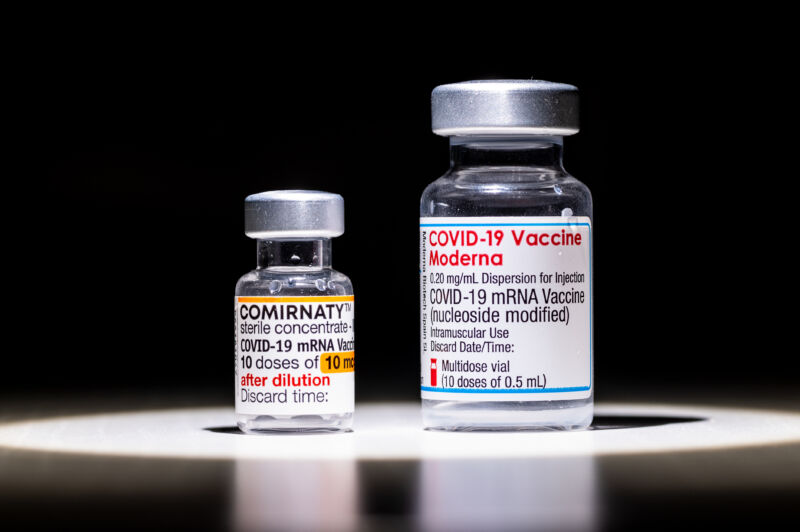Pfizer, Moderna vaccines aren’t the same; study finds antibody differences

Enlarge / The Comirnaty (Pfizer/BioNTech) and Moderna COVID-19 vaccines. (credit: Getty | Marcos del Mazo)
The mRNA-based COVID-19 vaccines made by Pfizer/BioNTech and Moderna have proven highly effective at priming our immune systems to fight the pandemic coronavirus-preventing substantial amounts of infection, severe disease, and death throughout several waves of variants. But despite their similar design and efficacy, the two vaccines are not exactly the same-and our immune systems don't respond to them in the same way.
An early hint of this came from some real-world data that found startling differences in the effectiveness of the two vaccines, despite both shots performing nearly identically in Phase III clinical trials, with efficacies of 95 percent and 94 percent. Amid last year's delta wave, a Mayo Clinic study found that Pfizer's effectiveness against infection dipped to 42 percent while Moderna's fell to 76 percent.
According to a new study in Science Translational Medicine, such differences might be explained by evidence that the two vaccines spur the immune system to produce slightly different antibodies against SARS-CoV-2.
Read 5 remaining paragraphs | Comments